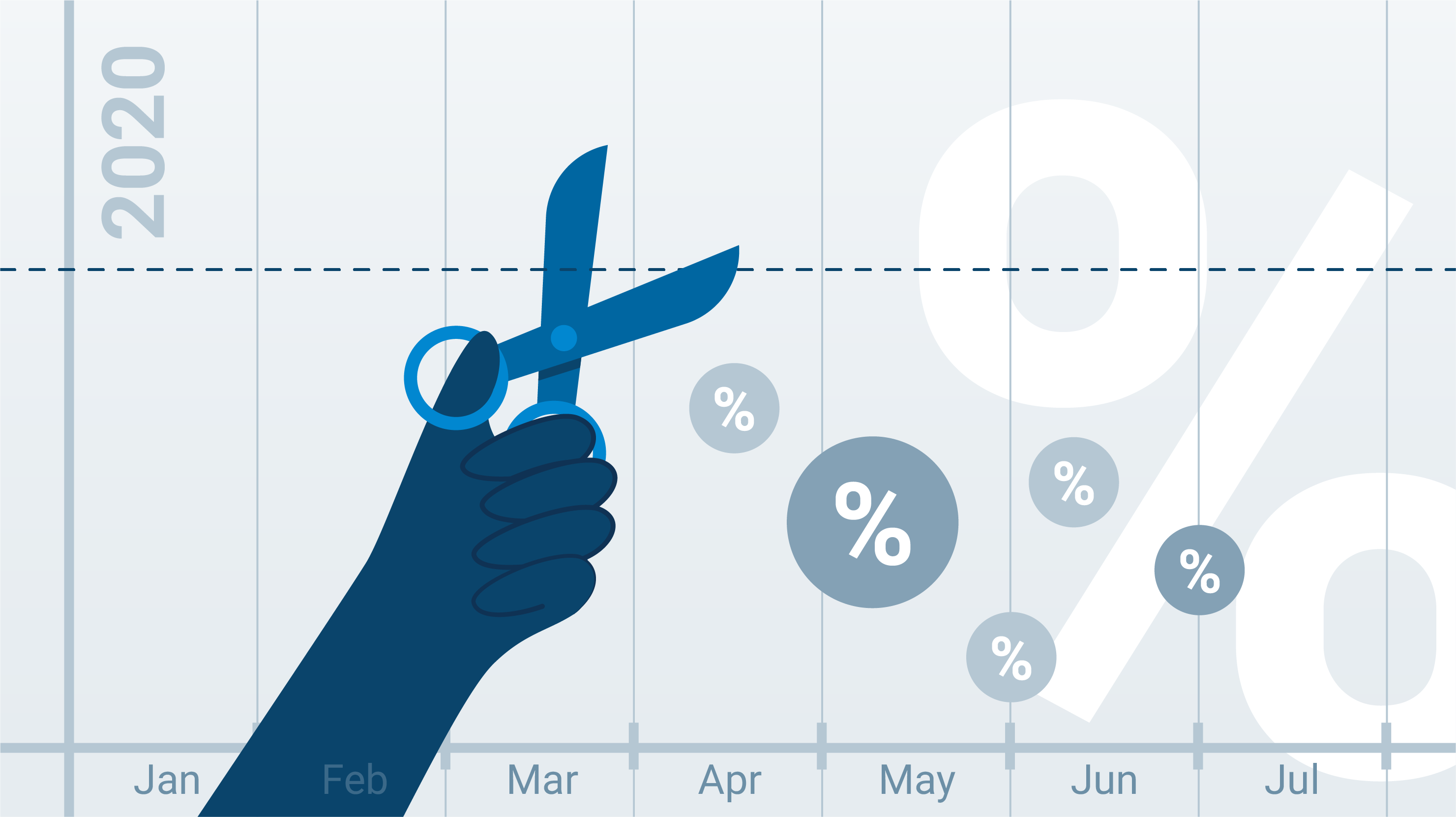
Will the Bank of Canada Cut Rates in 2020?
Another Bank of Canada rate announcement has come and gone and its trend-setting Overnight Lending Rate has been left once again at 1.75%.
The Bank of Canada may have kicked off 2020 with another rate hold – its 10th in a row – but the stable economic factors that have underpinned its recent monetary policy may be starting to fizzle as we enter the new decade.
In the latest announcement on January 22, the Bank took a notable shift in tone, suggesting that weaker trends in domestic and global economic growth could lead to a rate cut sometime this year. According to the Monetary Policy Report the BoC also released that day, it expects global growth to strengthen gradually by the end of this year after a period of “synchronous slowing”, though reduced tariff tensions between the U.S. and China, as well as the impending ratification of the USMCA could give things a boost. Overall, it calls for global growth to hit 3.25% by 2021.
A Slow End to 2019 Hits New Year Forecast
However, on the home front, much of the doubt stems from the fact that the Canadian economy slowed significantly in the second half of 2019, as business investment and exports have been affected by the struggling oil and gas sector. Household consumption has also been weaker than expected, as Canadians spend less amid hovering labour disputes, production disruption, and even poor weather impacting output. Overall, it’s expected that domestic growth will hit 0.3% this year and 1.3% next, ¾ of a per cent lower than in the October forecast.
However, the housing market remains a bright spot in Canada’s economy, especially in Quebec where the strong labour market is supporting demand. As well, the Ontario and BC markets have enjoyed large year-over-year improvement in sales, as home buyers return after being sidelined in previous years by the federal mortgage stress test. In addition, the target for inflation – a key metric that informs the BoC’s monetary policy – has stuck close to 2%, indicating conditions are stable enough to warrant a hold on rates… At least for the time being.
However, should things continue to soften, there’s a distinct possibility that the BoC will slash rates at some point this year, with BoC Governor Stephen Poloz stating as such to reporters on the day of the announcement.
“I’m not saying that the door’s not open to an interest rate cut. Obviously it is. It is open,” he said. “But it hinges how the data evolve from here … We have a strong belief that this will prove temporary, but temporary could be longer or shorter, and to the extent that it’s longer … we would have to come back to that decision, to decide then whether or not the interest rate as it is today remains appropriate.”
Following his statement, the odds of a March rate cut jumped to 24.1%, with a 57.7% likelihood in June.
Overall, the BoC says any new economy data will be key in deciding their next move. “In determining the future path for the Bank’s policy interest rate, Governing Council will be watching closely to see if the recent slowdown in growth is more persistent than forecast,” it stated in its rate announcement. “In assessing incoming data, the Bank of will paying particular attention to developments in consumer spending, the housing market, and business investments.”
Coronavirus Market Impact Could Also Influence Rate Cut
In addition to the softer economic fundamentals noted by the Bank in January, the unfolding Coronavirus medical crisis could also prompt the BoC to slash rates in the near future. While news of the virus had broken during the last rate announcement, its full scope had not yet been realized. From an economic point of view, a main concern is the damage caused to the Chinese economy, as worries mount it may endure a technical recession which would reverberate with market instability around the world.
There is also precedent of a global health scare influencing Canadian interest rates: in 2003, the BoC opted for a cut following the breakout of SARS. However, from a local perspective, the nation was harder hit by that pandemic – Toronto particularly so, prompting a travel advisory from the Global Health Organization – which led to a drop in tourism.
That said, some prominent economists are expecting the BoC to react the same way this time around, with a rate cut on the near horizon.
Said Derek Holt, Scotiabank’s head of capital economics, to the Globe and Mail, “The Bank of Canada may be more likely to ease sooner under a Coronavirus shock then was the case with SARS when they waited several months until July to cut. To be clear again, the early stages of this shock are not a major driver of our rate call by any means, but it could well tip the balance in terms of timing it. Key is that the comparative starting conditions into the two shocks in 2003 and now are important.”
It will be interesting to see how these latest developments play out in the BoC’s upcoming March announcement, as lower consumer interest rates could just be around the corner.
Penelope Graham is the Managing Editor at Zoocasa, a full-service brokerage that offers advanced online search tools to empower Canadians with the data and expertise they need to make more successful real estate decisions. View real estate listings, including Vancouver houses for sale and houses for sale in Toronto, on zoocasa.com or download our free iOS app.


